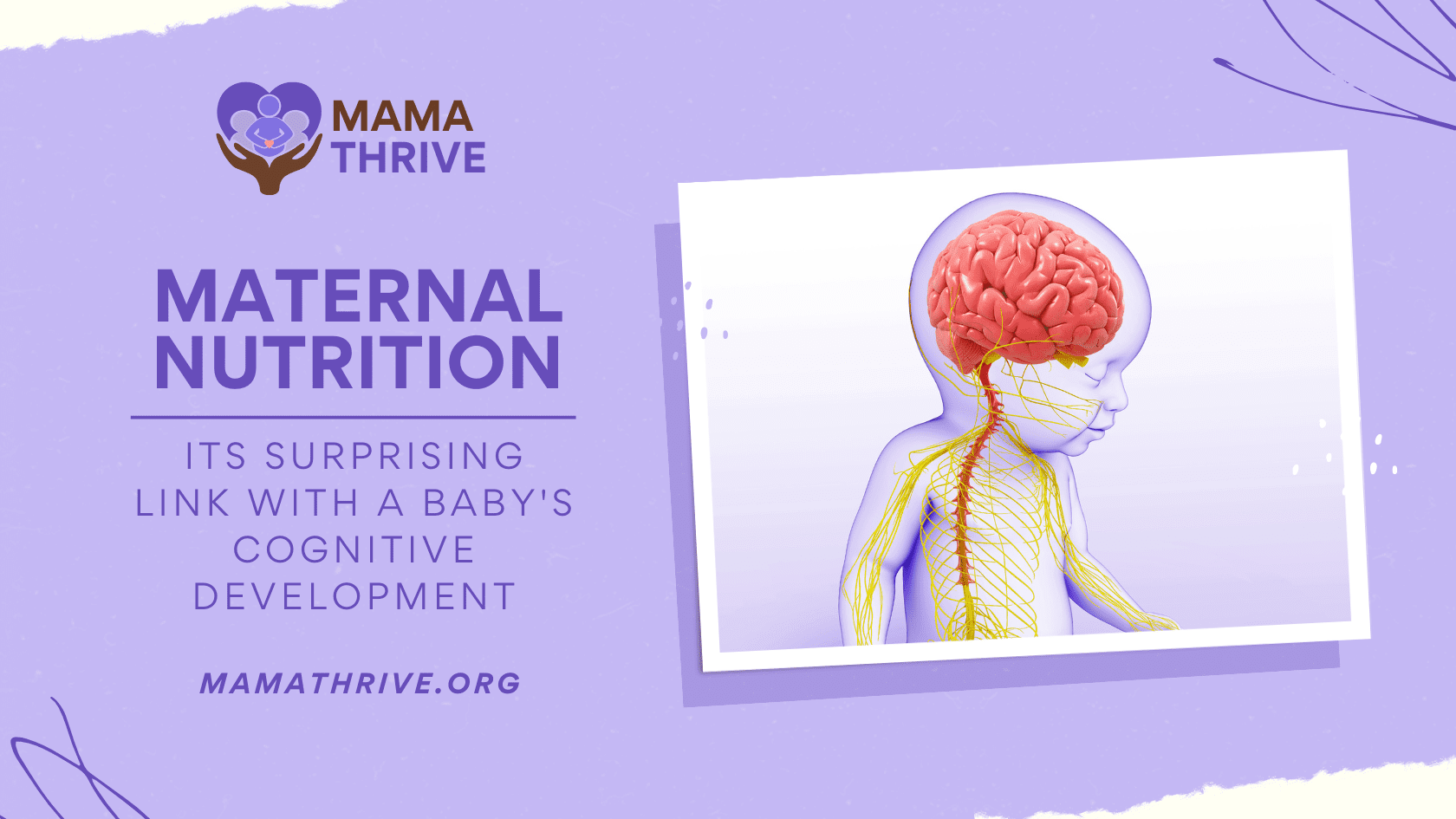Picture this: with every morsel an expecting mother consumes, she’s not just fueling her body or even solely shaping her baby’s physical form. Instead, she’s potentially scripting the narrative of her child’s cognitive journey. As profound as it sounds, the plate in front of a pregnant woman might just hold the secrets to her child’s future intellectual prowess. While it’s common lore that maternal nutrition affects a baby’s physical health, the deep and startling connection between a mother’s meals and her baby’s brain power is a revelation waiting to be unraveled.
Join us as we delve into the surprising link between maternal nutrition and the labyrinth of a baby’s cognitive development. Buckle up; this is a journey through the mind, starting at the very first bite.
Maternal Nutrition: More Than Just Calories
Imagine maternal nutrition as an orchestra. Each nutrient — be it a vitamin, mineral, carbohydrate, protein, or fat — is like an individual instrument. While each has its melody, when combined, they create a harmonious symphony that can set the stage for optimal health, growth, and development of the baby.
More tips for healthy diet during pregnancy.
For the uninitiated, nutrition might simply seem like a mechanism to keep the body running — much like fuel for a vehicle. However, when it comes to pregnancy, maternal nutrition is a deeply nuanced subject, operating on several layers:
Foundation for Organ Formation
Every bite a mother takes carries with it the potential to influence her child’s physical blueprint. Essential nutrients, proteins, and minerals play a role in shaping the heart, liver, kidneys, and other vital organs. It’s a testament to the fact that the first stages of organogenesis are directly tethered to the nourishment provided by the mother.
Brain Architecture and Cognition
The brain, a marvel in its own right, starts taking shape early in pregnancy. Omega-3 fatty acids, amino acids, and other vital nutrients are not just optional but essential for the formation of neural networks, synapses, and the overall architecture of the brain. These networks become the foundation for cognition, emotions, and personality.
Hormonal Harmony
The endocrine system, responsible for producing hormones, is like the body’s communication network. Nutrients like iodine, for instance, play a pivotal role in thyroid health, which in turn influences other hormones. A balance in maternal nutrition ensures that this network is set up efficiently, which will govern the child’s metabolism, growth, mood, and much more.
Blueprint for Future Preferences
Intriguingly, what a mother consumes during her pregnancy can influence the taste preferences of her baby. The amniotic fluid, which surrounds the baby in the womb, carries flavors from the foods the mother eats. This early exposure is believed to shape the baby’s affinity towards certain tastes post-birth, nudging their palate formation and future food choices.
The Potential Impact of Poor Maternal Nutrition

Sugar and Processed Foods
The convenience of processed foods and sugary treats might seem tempting. But here’s the caveat: a high intake of such foods during pregnancy is linked with several adverse outcomes. Research has shown a potential link between high consumption of processed sugars and an increased risk of ADHD in children. While many associate sugary foods with the brief energetic “sugar rush,” the implications are more profound.
Consuming large amounts of processed sugars might not only lead to short-term hyperactivity but can also cause changes in a child’s brain chemistry, which can impact their behavior over time. This change in behavior could manifest as symptoms resembling those of ADHD. It’s crucial for parents and caregivers to be aware of the long-term consequences of a diet high in processed sugars.
Alcohol Consumption
Alcohol, a neurotoxin, has profound effects on the developing fetus. The term ‘Fetal Alcohol Spectrum Disorders‘ (FASD) encompasses a range of conditions that can occur in a person whose mother consumed alcohol during pregnancy. Symptoms can include physical anomalies, learning disabilities, behavioral problems, and impaired cognitive functions. Even mild alcohol consumption can have lasting implications, making complete abstinence a safer choice during pregnancy.
The Long-Term Implications
The repercussions of poor maternal nutrition reverberate far beyond infancy. A child’s cognitive abilities lay the groundwork for their success in various spheres:
- Academic Achievements: Cognitive deficits can lead to struggles in school, hindering their academic potential.
- Problem-Solving: A fundamental skill, problem-solving is essential in day-to-day life, and any impediment can affect a child’s ability to navigate challenges.
- Emotional Intelligence: The ability to understand and manage one’s emotions is rooted in cognitive development. Poor maternal nutrition can inadvertently impact a child’s emotional responses and interpersonal relationships.
- Adaptability: In an ever-evolving world, adaptability is a prized trait. Cognitive hindrances can limit a child’s ability to adjust to new environments, technologies, and situations.
Learn more about the causes of high-risk pregnancy.
Ensure Nutritive Intake

While the scenario might seem grim, the good news is that positive changes can be made at any stage. Here’s how:
- Consultation: Every pregnancy is unique. Engage with healthcare professionals to identify specific dietary needs and potential deficiencies.
- Balanced Diet: The term ‘eating for two’ takes on a new meaning here. Prioritize a mix of proteins, healthy fats, complex carbs, vitamins, and minerals to cater to both the mother’s and baby’s needs.
- Supplementation: Not all nutrients are easily sourced from food, especially in today’s world with soil depletion and environmental concerns. Supplements can fill these gaps, ensuring that the fetus receives all the necessary building blocks for optimal growth.
- Stay Informed: Knowledge is empowerment. As nutrition science advances, new insights and recommendations emerge. Regularly updating one’s knowledge base can aid in making informed, healthful choices.
Conclusion
The link between maternal nutrition and a baby’s cognitive development is both profound and awe-inspiring. It reiterates the importance of conscious choices during pregnancy. As we understand more about this connection, the adage “you are what you eat” takes on a deeper significance – suggesting that perhaps, “your baby becomes what you eat” too. Investing in maternal nutrition is, undeniably, investing in our future generations.





